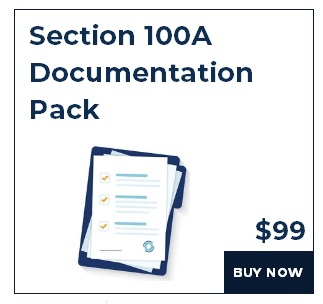
Upcoming Events
Over my Dead Body Seminar
On 25 March 2020, Birchstone Tax Law will be running an estate planning seminar. To find out more details and to purchase tickets, click here.
ATO Update
Draft Taxation Ruling TR 2021/D2 – Personal services income and personal services businesses
The ATO has released Draft Taxation Ruling TR 2021/D2 which sets out how the personal services income (PSI) rules contained in Part 2-42 of the Income Tax Assessment Act 1997 (Cth) apply to an individual or entity. The Draft Ruling incorporates relevant AAT and court decisions that have been handed down since the previous Rulings dealing with the PSI rules (TR 2001/7 and TR 2001/8) were issued in 2001. Amongst other things, the Draft Ruling considers:
- the meaning of PSI;
- determining whose PSI it is;
- the personal service business (PSB) tests; and
- the application of Part IVA of the Income Tax Assessment Act 1936 (Cth).
When finalised, the Ruling will apply to arrangements begun to be carried out the day after TR 2001/7 and TR 2001/8 are withdrawn.
COVID-19 and working from home benefits: ATO guidance
The ATO has released guidance on FBT obligations where employees are provided with benefits to support working from home arrangements during the COVID-19 pandemic. The fact sheet covers benefits that may be exempt from FBT or have their taxable value reduced under the ‘otherwise deductible rule’, including:
- work laptop, other portable electronic device and tools of trade;
- general office equipment;
- counselling; and
- health care.
Cases
FCT v Travelex Limited [2021] HCA 8 – Commissioner not liable to pay interest on overpaid GST
The High Court of Australia has allowed the Commissioner’s appeal from the decision in FCT v Travelex Limited [2020] FCAFC 10, ruling that the ATO was not liable to pay interest on an overstated GST liability.
Travelex was in the business of providing currency exchange services at the departure side of customs barriers at international airports. Following a High Court ruling in September 2010, Travelex’s sale of foreign currency was found to be GST-free, meaning that they had overstated their GST liability in their November 2009 BAS. In June 2012, the ATO amended the GST return for the relevant period and paid the resulting Running Balance Account (RBA) surplus.
The issue in dispute was the date from which the ATO was liable to pay interest on the RBA surplus. The Full Federal Court held that interest on the RBA surplus was payable by the ATO from the 14th day after the surplus arose, being December 2009. The High Court unanimously overturned this decision, ruling that interest was not payable because the ATO was not legally obliged to pay the overpaid GST to Travelex, meaning that the refunded amount did not qualify as an RBA surplus for the purposes of the Taxation (Interest on Overpayments and Early Payments) Act 1983 (Cth).
Slatter Building Group Pty Ltd v FCT [2021] AATA 456 – Business not entitled to cash flow boost
The AAT has affirmed the Commissioner’s decision that a taxpayer was not entitled to the first cash flow boost because it had not a made taxable supply in the period ending 12 March 2020.
In January 2020, the taxpayer company had taken over a sole trader business which had been operating since 2018. The company obtained a new ABN and registered for GST, effective from 20 January 2020. On 1 May 2020, the company lodged its first activity statement for the quarter ended 31 March 2020. The taxpayer subsequently applied for the first cash flow boost but was denied by the ATO on the basis that it could not satisfy the eligibility requirements.
The issue in dispute was whether the taxpayer had made a taxable supply in a tax period that applied to it that: (i) started on or after 1 July 2019; and (ii) ended before 12 March 2020, in order to qualify for the first cash flow boost. Although the taxpayer may have made a taxable supply between its incorporation and 12 March, because the taxpayer’s first tax period ended on 31 March 2020, the AAT held that the taxpayer had not made a taxable supply in a period that applied to it ending before 12 March 2020.
Freedom Willeton Pty Ltd v Commissioner of State Revenue [2021] WASCA 38 – Duty chargeable on a joint venture agreement
The Supreme Court of Western Australia Court of Appeal has held that a joint venture agreement (JVA) between taxpayers constituted an agreement for the transfer of dutiable property for the purposes of the Duties Act 2008 (WA).
The two taxpayer companies owned adjacent lots of land. The parties entered into a JVA, later rectified by deed, to amalgamate the lots and then to subdivide this lot into smaller lots for sale. One of the taxpayers transferred their lot to the other to facilitate the amalgamation of the land. The Commissioner of State Revenue assessed duty of $727,790 on the JVA, to which the appellants objected. The Commissioner disallowed the objection and the State Administrative Tribunal affirmed the Commissioner’s decision.
The issues in dispute were whether the JVA was an agreement for the transfer of dutiable property, and if it was, whether nominal duty under section 118(2)(a) of the Duties Act 2008 (WA) applied. Section 118 provides for nominal duty for transfers to and from bare trustees. The Court of Appeal held that the JVA constituted an agreement for the transfer of dutiable property and was a dutiable transaction. The Court of Appeal stated that when the JVA was construed as a whole, it underpinned a commercial arrangement for the transfer of property. The Court of Appeal also held that section 118(2)(a) is confined to ‘transfers’ and does not extend to an ‘agreement’ for the transfer of dutiable property, meaning that it could not apply to the JVA.
Legislation
Taxation Administration (Remedial Power – Certificates for GST-free supplies of Cars for Disabled People) Repeal Amendment Determination 2021 – Repeal provision introduced
The ATO have registered a legislative instrument which includes a repeal provision in the Taxation Administration (Remedial Power – Certificate for GST-free supplies of Cars for Disabled People) Determination 2020. Repeal of the principal instrument will now take place on 1 April 2024, allowing continued access for disabled people to GST-free cars and car parts in specified circumstances.

